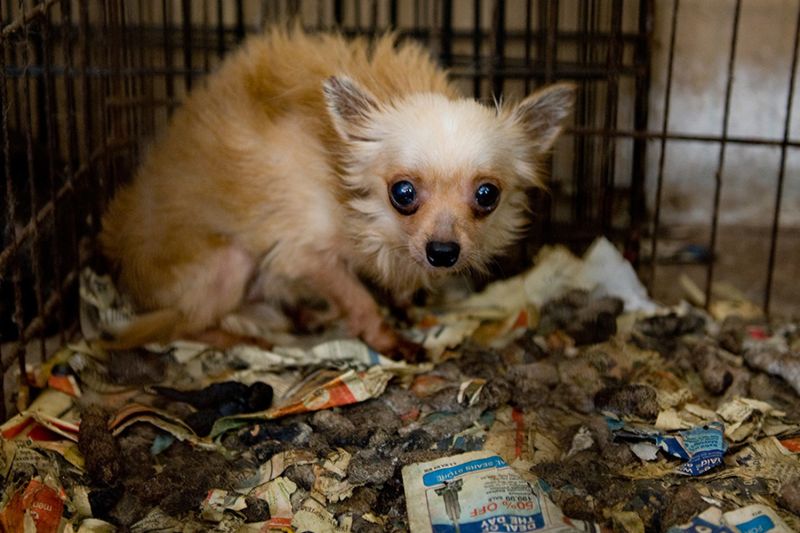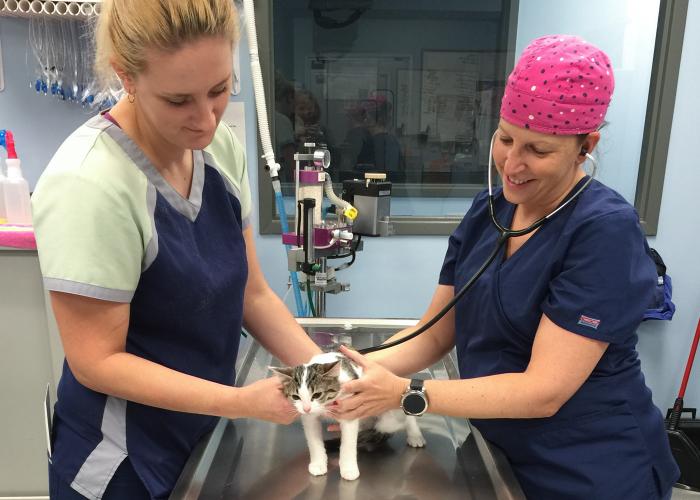Disappearing act
USDA removes vital information for combating puppy mills and other abusive industries

At 11 a.m. on Feb. 3, Amanda Gossom of The HSUS’s puppy mills campaign was doing a routine part of her job, researching online inspection records for USDA-licensed dog breeders, when suddenly she hit a wall.
She’d typed in the next breeder’s name and clicked search, expecting the usual information. Instead, she got an error message.
For six years, the USDA had posted inspection and violation records and other documents related to enforcement of the Animal Welfare and Horse Protection Acts on its website. These public records, funded by taxpayers, help consumers find out more about the animal welfare records of commercial dog breeders, horse trainers and owners, roadside zoos, research laboratories and other facilities. Now, two weeks into the Trump administration, the agency had removed everything.
Word spread fast. Well before the USDA posted an early-afternoon press release, HSUS staff members who work on behalf of horses, animals in labs and captive wildlife heard the bad news. Instead of getting instant access to information about 9,000 animal facilities, they will have to submit Freedom of Information Act (FOIA) requests, which the short-staffed USDA often takes months or even years to process.
“Outrage, frustration, anger,” says Kathleen Conlee, HSUS vice president of animal research issues, describing her initial reaction.
The abrupt change may have been partially the result of a federal lawsuit filed in 2016 by Tennessee walking horse owners, trainers and organizations in Texas, who alleged the USDA was violating due process and privacy rights by posting inspection and violation records online. Some dog breeders had made similar complaints, but in cases where breeders challenged their alleged violations, the agency had taken reports down, only reposting them after the inspector’s citation had been reviewed.
For the puppy mills campaign staff, the purge of public information means that they—as well as pet stores and puppy buyers—will have no quick way to check a commercial breeder’s record. And in the seven states where pet stores are prohibited from purchasing pups from breeders with significant USDA violations, these laws will now be difficult, if not impossible, to enforce. “If they FOIA the documents, by the time they get them, the statute of limitations will likely have expired,” says John Goodwin, senior director of the HSUS puppy mills campaign.

Goodwin’s team has long relied on the USDA records to identify ongoing problems of cruelty and neglect in puppy mills and to see if government officials are properly enforcing the Animal Welfare Act’s modest standards. Their watchdog role is necessary: A 2010 report by the USDA’s Office of the Inspector General found that the agency was “being way too lenient with repeat violators, some of them leaving animals to suffer tremendously,” says Goodwin. Last year, he adds, the USDA closed down seven puppy mills after The HSUS made repeated complaints based on the agency’s own paperwork.
With each passing day the inspection reports and related records remain hidden, it will be even harder for animal welfare groups to identify animal abuse or to gather the facts to push for reform.
“It’s incredible,” Goodwin says. “You can run a puppy mill and you can abuse animals and then count on the USDA to purge the data so no one will ever know.”
A few days after the records disappeared from the USDA’s website, The HSUS sent a notice to the Department of Justice that the agency was in violation of a 2009 court-ordered settlement requiring it to post online certain annual reports from animal research labs, which describe how many of each species of animal was used and what kinds of pain and distress they endured. The HSUS is also helping build public pressure for the USDA to restore the online records.
In mid-February, the agency reposted some annual reports and limited inspection data on animal research facilities, but this represents just a small portion of the information that was taken down—not even enough to satisfy the requirements of the 2009 court order.
“We will fight this to the bitter end,” says Goodwin. “We want them to put it all back up. Nothing short of that will be acceptable.”






